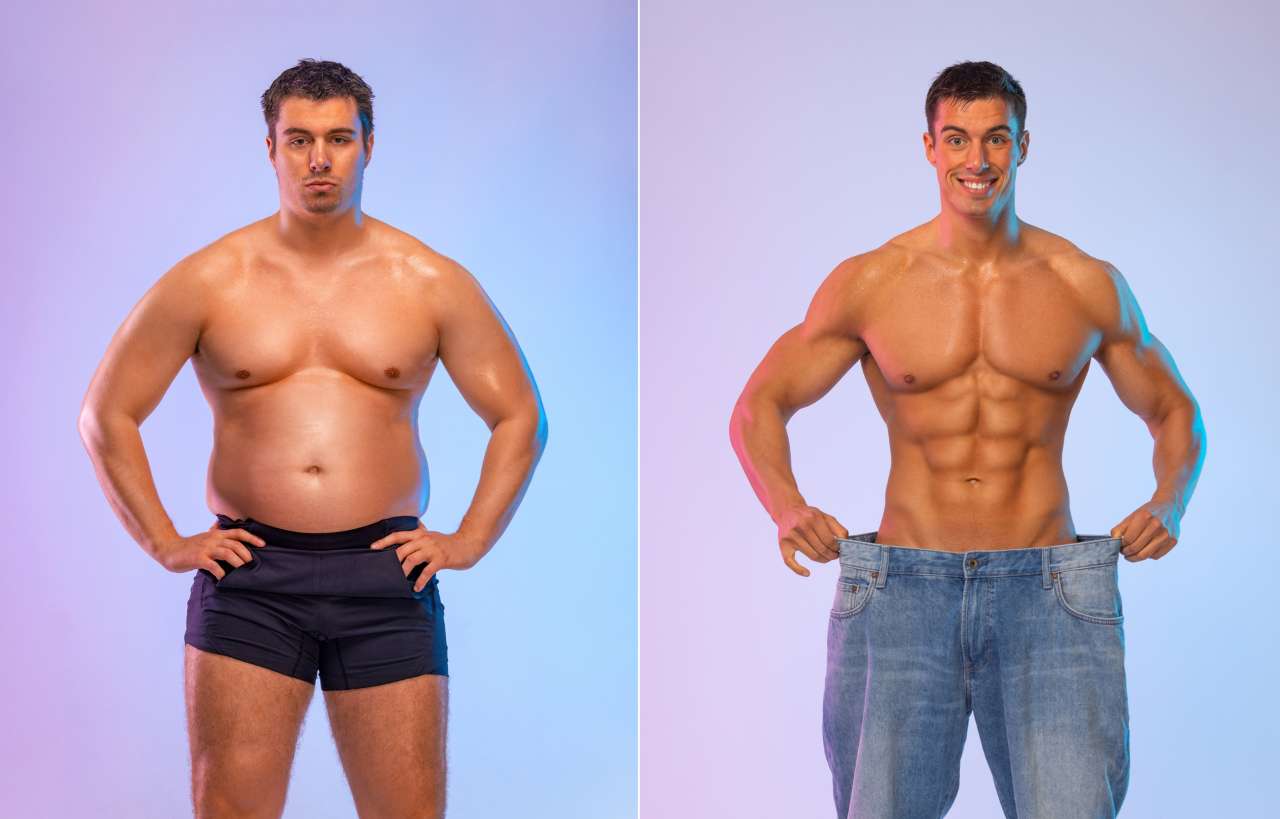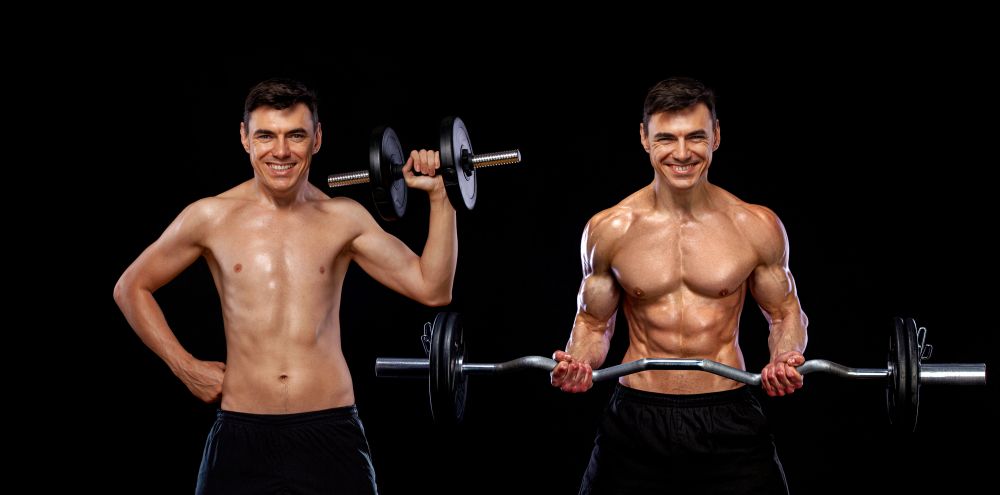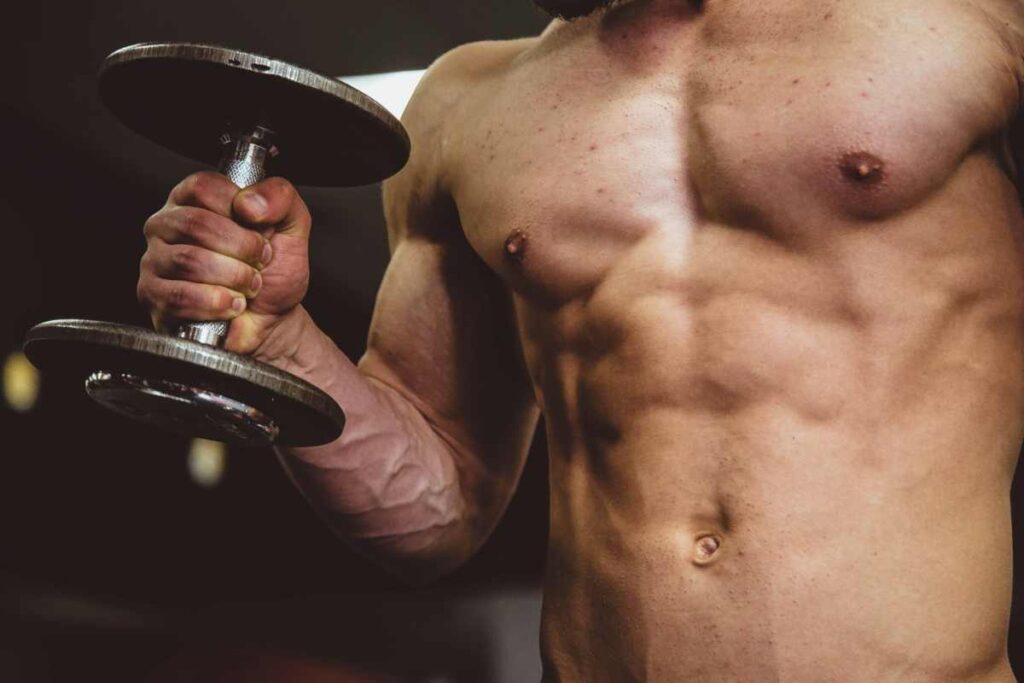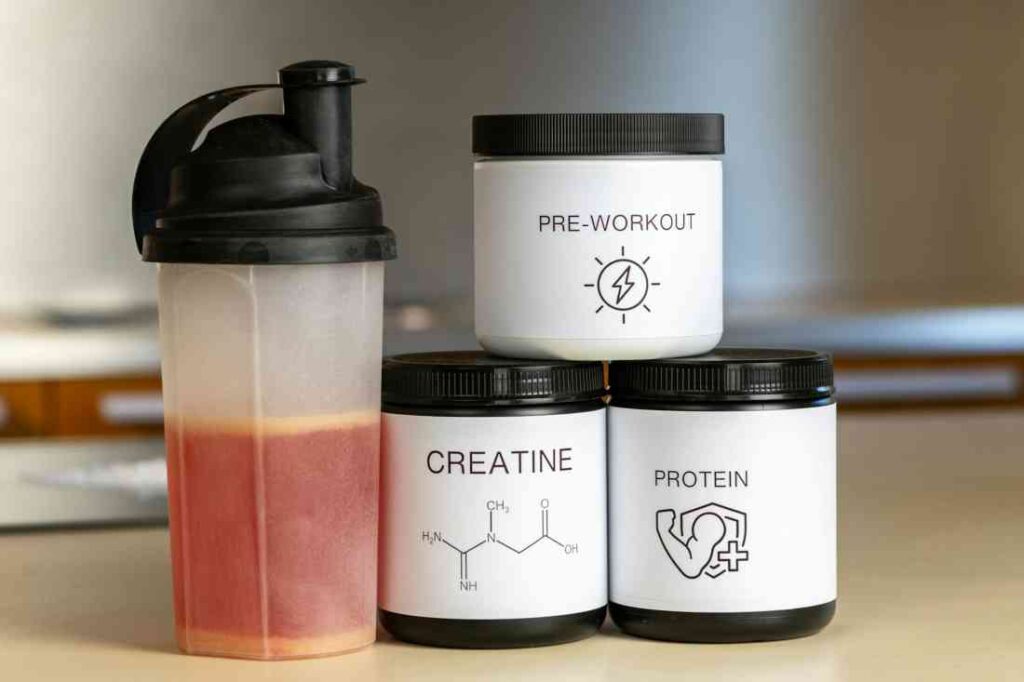Get In Touch
Info@fitfaysal.com

Does building muscle and losing fat at the same time sound too good to be true? This may be one of the few times it is actually true.
But hold the breaks; the effect of body recomposition or “body recomp” for short, holds power only for certain individuals.
Body recomp is a great method for when you’re just starting out in the gym or when you want to get back on track; however, it shouldn’t be viewed as a lifetime approach to bodybuilding.
It simply won’t work for a long time and eventually you’ll just remain stagnant (no more new gains).
I get it—you don’t want to bulk up because you don’t want your midsection to feel like jelly, so I’ll give you some tips to make body recomposition work.
Body recomposition isn’t perfect like many things and my aim with this post is to help you know who body recomposition is for, how effective it is, and tips for success.
If you came here for answers to these questions, I’m confident you’ll leave satisfied!
Let’s get into it.
Body recomp only works if you fit this profile: you’re a noob to working out, a person who was consistently working out before but stopped, or a person who suddenly increases the intelligence and efforts behind their workout and diet.
So, if you fall into this category, then you will surely gain some value from this post! But I won’t hop on the train that paints body recomposition as “perfect.”
Everyone loves to hype things up to make them way more effective and impressive than they are.
Body recomp is one of those things. I mean, it works, but is it more effective than if you went through normal bulking and cutting phases? Not quite.
If you want notable gains (muscle gains people actually see), then you need to move on from body recomp after a few months.
So, to put it straight, does body recomposition work? Yes, but not for long and the gains can be slow and hard to notice.
Body recomp will have little to no effect on you if you’ve been training and eating right consistently and/or if you’re too lean.
If you’ve been on game with your macros, eating enough calories, and pretty much doing everything near perfect, then body recomp won’t do anything for you.
If you’re lean, with around 10% body fat and not enough calories coming in, then there’s nothing for your body to use to build muscle.
Now that we have cleared the essentials, let’s get into some tips to help you see more success and gains from body recomposition.

Body recomposition is a method of training that kills two birds with one stone. Fat loss and muscle gain.
However, if you want to maximize as many gains as possible during a recomp, you need to make some changes.
Here are some tips that will help you get the best results out of a recomposition:
Your weight and body fat percentage will determine your calorie range.
If you’re lean, you’ll have to go on a slight calorie surplus; if you’re around an average weight, then eating at maintenance is recommended; and if you’re on the bigger side, you need to have a slight calorie deficit.
If you don’t get this step right, then you may be setting yourself up for failure. So, here’s a process for knowing your calorie intake:

It goes without saying that if you want to lose fat while building muscle, you need to resistance train as frequently as you can.
4-5 times per week is the optimal frequency; however, you will still see some gains at 3 times per week.
If you don’t want to leave any gains on the table, then you train better. Train with purpose and intensity.
Train with proper form, at the right rep ranges and sets, and with enough weight to really push yourself toward hypertrophy.
How do you optimize your workouts?
Here are some sweet tips:
There isn’t any other time you’ll need more protein, like when you’re going on a body recomp. Gaining muscle mass and losing fat is a sweet deal, and sweet deals require extra support.
To build a good amount of muscle and lose body fat, you need to get a lot of protein.
How high?
Over 1 pound per pound of body weight for optimal muscle growth. However, you can still build decent muscle on less.
If you eat too little protein while you’re lean and already on a calorie deficit, your body won’t have any choice but to tap into your existing muscle for sustenance. (You don’t want that.)
Related: 9 Nutrition Mistakes Lifters Are Making Right Now (Avoid These)
A common misconception people have when trying to recomp is that to lose fat and gain muscle, they have to do a freak ton of cardio.
However, not only is this false, but it will also harm your gains. What your body needs for recomposition is strength training more than anything.
Doing excessive cardio will burn fat, but guess what? It’ll burn your hard-earned muscles along with it.
So, how do we tackle this? You can either reduce your duration of cardio (don’t have to tell you twice, right?) or choose a lower-intensity cardio activity like walking.
Walking is perfect for body recomposition for various reasons:
If you don’t fancy walking, then think of any sports activity you enjoy doing and do that often instead.
It’s starting to become known that getting enough quality sleep is essential for muscle growth, and it also promotes fat loss.
Multiple studies have shown a direct correlation between better sleep, muscle development, and fat loss.
You need sufficient sleep for the recovery and preservation of lean muscle mass.
Sleep’s restorative processes help with muscle repair and growth, resulting in a leaner, more aesthetic physique.
Quality sleep supports mental clarity and decision-making, which reduces the likelihood of you making unhealthy food choices and supports overall well-being.
According to PMC, good sleep quality is linked to greater muscle strength, while poor, short sleep durations can lead to decreased muscle strength.
Additionally, multiple sources state that just going from 6 hours to 7 hours of sleep will yield better results. And of course, the more, the better.

No, I’m not talking about the mountain of supplements fitness influencers tell you to take.
You only need three supplements for enhanced body composition: protein powder, creatine, and a micronutrient multivitamin.
Most people find it difficult to hit their protein targets because they don’t know the right protein sources or because they don’t have the time to prepare meals.
Protein powder is just a very convenient source of protein. You can add it to shakes, oats, pancakes, and many more types of food, making it versatile.
The main benefit of creatine is an increase in strength and power output during resistance training.
It also increases water retention in your muscles, making them look bigger.
It’s like steroids’ natural cousin.
Adequate levels of micronutrients ensure that your body effectively utilizes the macronutrients (proteins, fats, and carbohydrates) consumed for energy, muscle repair, and overall well-being.
If you hit these three supplements, you’ve pretty much checked all the important boxes.
Check out: Do You Need Carbs to Build Muscle? (See What Science Says!)
You’ve been doing body composition for a month or two and you want to know if it’s working.
Here are 3 ways to spot if body recomposition is working for you:
Is your bicep vein starting to show? Are your triceps popping out? Does your chest look bigger? Keep an eye out and even take steps to measure your muscles for growth.
If you’re getting stronger and progressively overloading at the same size, then that’s a key indicator that you’re growing muscle. (Body recomp is working!)
Are you starting to look different in your clothes? Are your arm sleeves getting tighter? Do your clothes feel looser? Or do you notice an improvement in how your clothes drape over your body?
If your answer is yes to one or more of these questions, then body recomposition is definitely working for you.